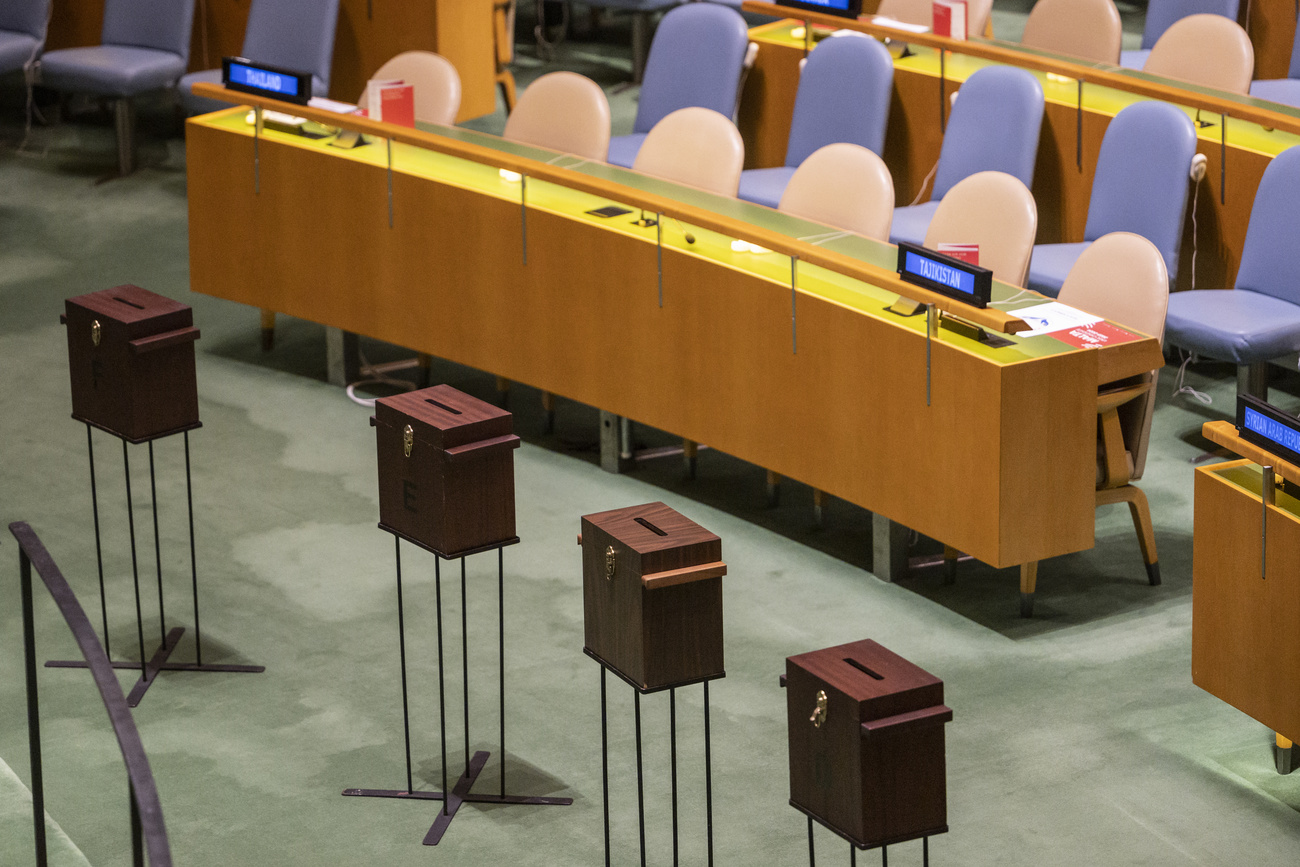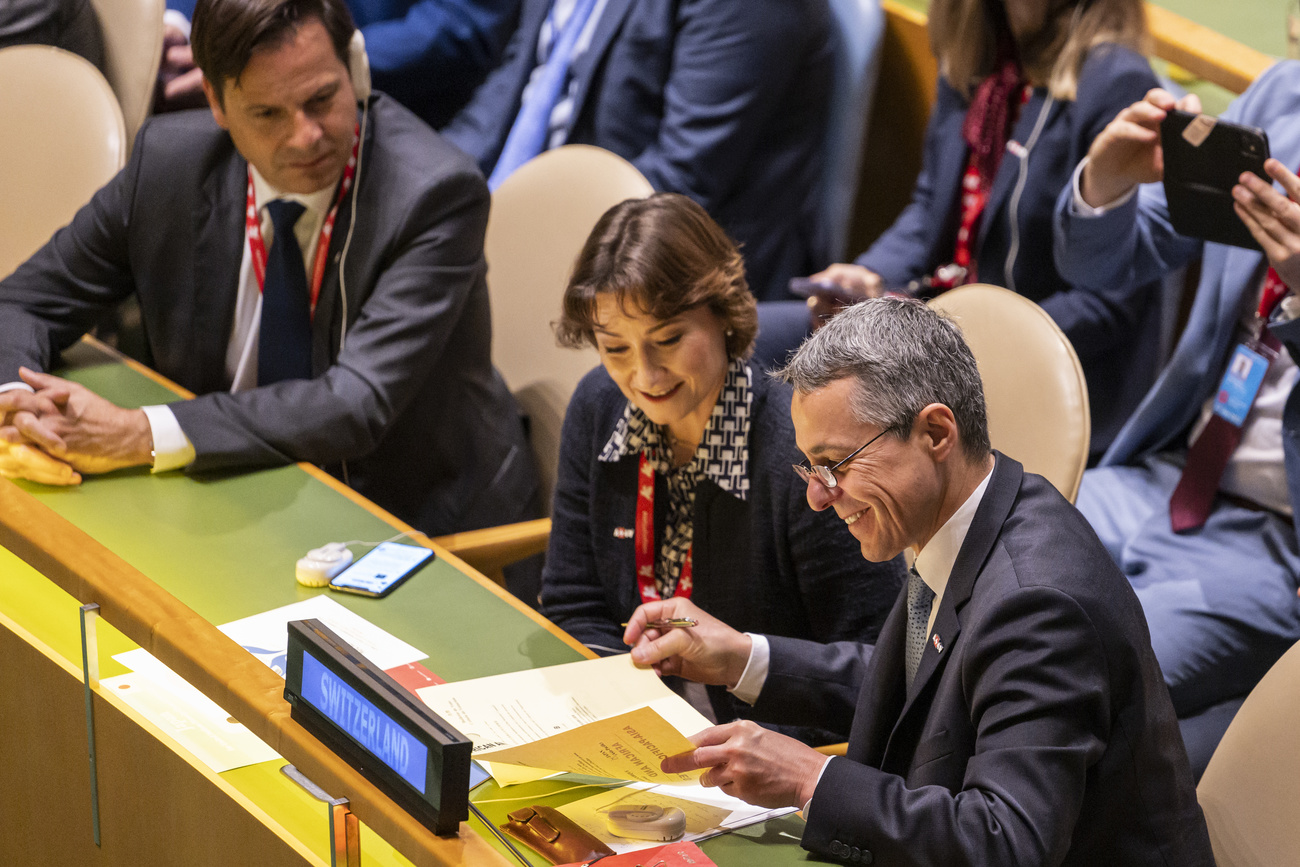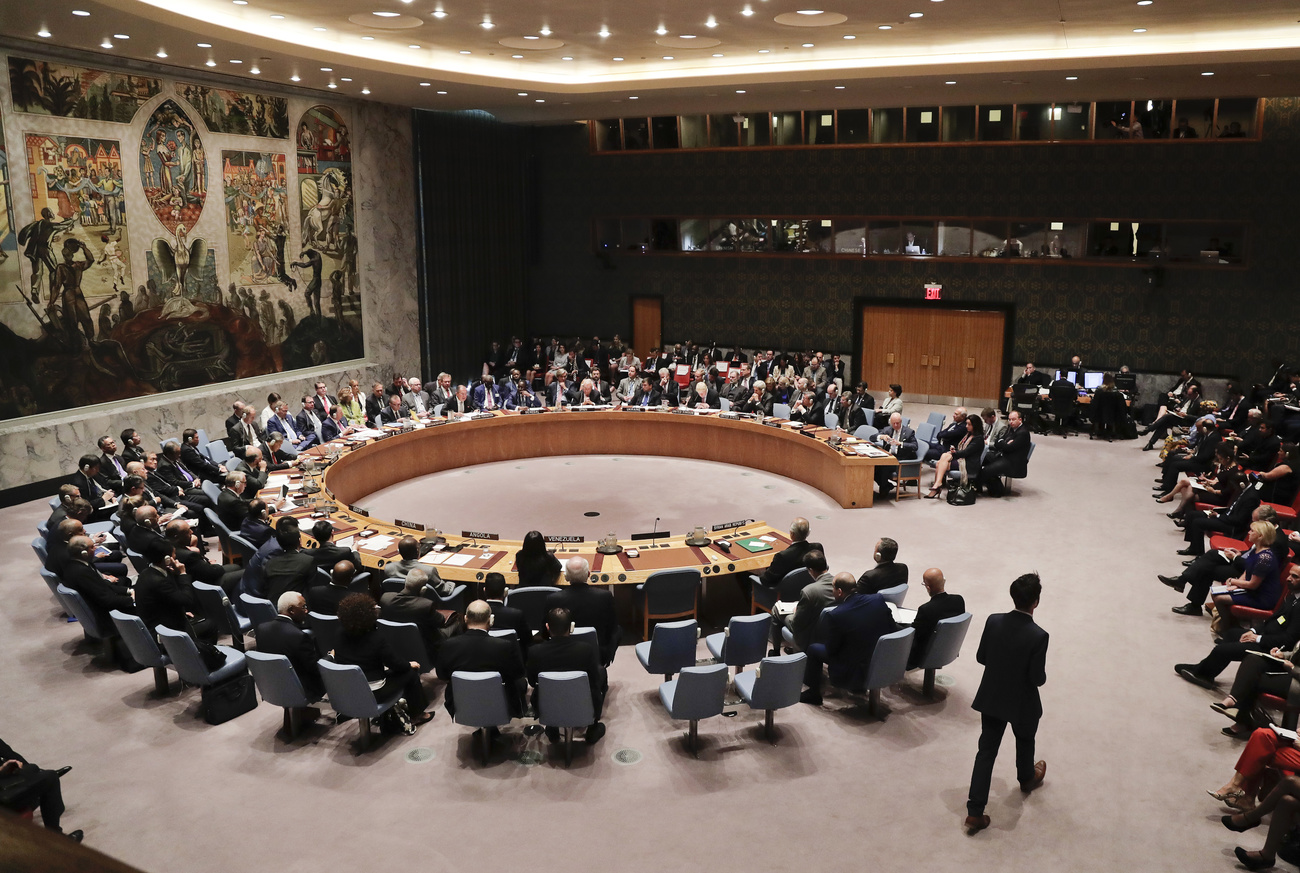
Switzerland elected to UN Security Council

Switzerland will be one of 15 countries sitting on the United Nations Security Council for the first time in its history. It will have one of the ten non-permanent seats for the period 2023-2024.
The election represents “a very important day for Switzerland”, said Foreign Minister Ignazio Cassis, who holds the rotating Swiss presidency this year, on Thursday. “Twenty years after our entry into the UN, we want to be part of the solution with our humanitarian tradition.”
Before the vote Cassis had said the seat “brought credibility to Switzerland because it can show what it is doing for peace and stability”.
Five candidates – Switzerland, Ecuador, Japan, Malta and Mozambique – had stood for the five regional seats that were up for grabs this year. There were no opposing candidates. The election was thus a formality.
It will be Mozambique and Switzerland’s first time serving on the council, Japan’s 12th time, Ecuador’s third time and Malta’s second time. The five new council members will start their terms on January 1, replacing five countries whose two-year terms end on December 31: India, Ireland, Kenya, Mexico and Norway.
Switzerland received 187 votes on Thursday. Voting at the 193-member General Assembly is anonymous, and there are no “no” votes, only abstentions. It is therefore unknown which countries abstained against Switzerland.

Switzerland’s election to the Security Council was welcomed by the UN’s secretary-general, António Guterres, who saw it as a “further demonstration of commitment to global peace and security”.
“Switzerland has always been a beacon in the international community for its principled approach to peace and multilateralism,” Guterres’ spokesman Stéphane Dujarric said on Thursday.
Political reaction within Switzerland was mixed. The right-wing Swiss People’s Party didn’t approve, saying Switzerland would now be dragged into foreign conflicts. The centrist Liberal Green Party, on the other hand, was delighted. “With its new task, Switzerland is taking on responsibility and can actively work for peace,” it tweeted.
The People’s Party saw things differently. After the vote it tweeted that in the UN Security Council major powers decide on war and peace. “With its seat on the UN Security Council, Switzerland is definitely a party of war,” it said.
The 15-seat council is the most powerful body of the United Nations. Like the United Nations it was born out of the ashes of the Second World War and held its first session in January 1946.
Its powers include establishing peace-keeping operations, enacting international sanctions and authorising military action. It is the only body in the UN system with the authority to issue binding resolutions on member states. Five of its members – the victors of the Second World War – are permanent. The remaining ten serve two-year terms and are elected on a regional basis. The Security Council’s presidency rotates among its members.
“Switzerland’s priorities in the Council are sustainable peace, climate change, security and the protection of civilians,” Cassis said on Wednesday.

More
UN Security Council: Switzerland can play role of ‘bridge-builder’
In addition, Switzerland wants to increase the efficiency of the Council and the UN as a whole. “If we can make some progress here, a lot has already been achieved,” he said.
Switzerland has long campaigned for a reform of the Security Council, as the body is very often blocked by the veto power of the five permanent members: the US, Russia, China, France and the UK.
On Wednesday evening in New York, Cassis attended a first meeting of the five new countries that were set to be on the Council. He said they discussed how cooperation could be shaped and how bridges could be built, especially with the five veto states.
He said Switzerland is expected to continue acting in the Security Council as it acts in the UN – by offering its good offices, promoting dialogue and being creative and innovative.
More

In compliance with the JTI standards
More: SWI swissinfo.ch certified by the Journalism Trust Initiative

























You can find an overview of ongoing debates with our journalists here . Please join us!
If you want to start a conversation about a topic raised in this article or want to report factual errors, email us at english@swissinfo.ch.